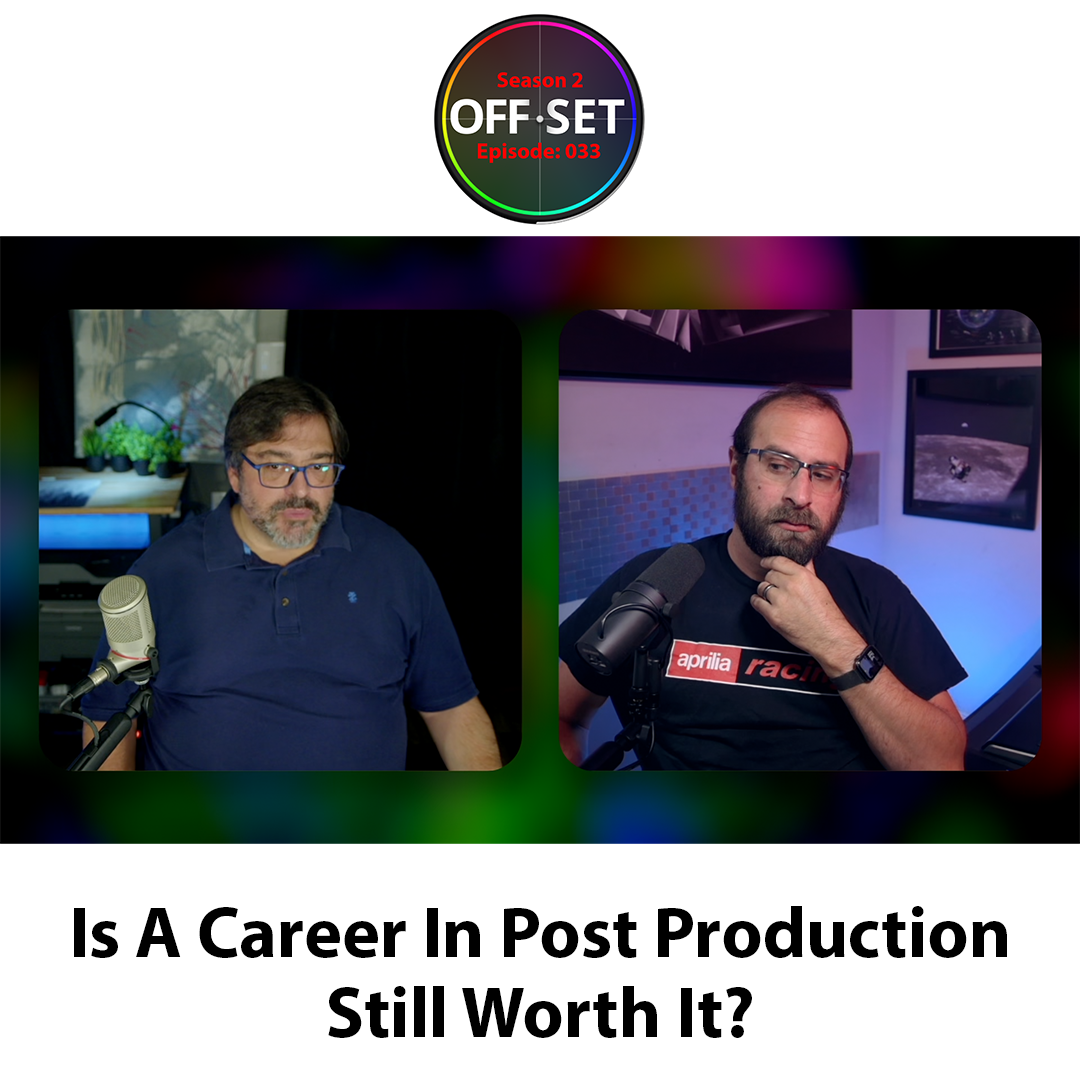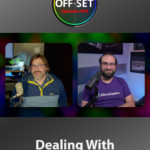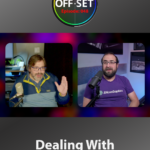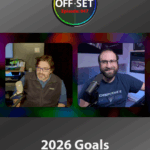EP033: Is A Career In Post Production Still Worth It?
Post Is Hard Right Now. But A Career In The Industry Can Still Be Worth It
It’s no secret that the post production (and production) industry is in a bit of tumultuous period resulting in a lot of people wondering if they should stay in the industry and for young people who are drawn to postproduction if they’re making the right move trying to pursue editing, color, mixing etc.
In this episode, we’ll explore these issues and more. While we don’t have the fixes for the macro issues at play in our industry, we discus many ways to battle the current downturn in post including:
- The current challenges in post production are multi-faceted and no single way to solve them
- Post production requires a massive amount of effort other industries can be more appealing (and more lucrative)
- Jobs at post facilities are few and far between but its hard to recommend to young folks starting out to just start their own business or go freelance – there are significant challenges in doing so
- Medium and small size post production companies can be doing a better job with training, mentorship and recruitment.
- Better understanding were postproduction work has gone – social content, corporate communications etc
- Developing adjacent stills are absolute necessity for the modern post worker – programing, AI , IT workflows
- Understanding not all work is art, but all work is commerce
- The product of ‘production companies’ has changed drastically and leverages more than just traditional post skills
- Content creation really only works with a purpose and a goal
- Moving from an operator role to other roles in the industry – even ones you might think of like software creation/management
- Skills learned in post are highly desirable and portable in a wide swath of industries
If you have some thoughts on the subject we’d love to hear from you.
LIKE THE SHOW?
If you like The Offset Podcast, we’d love it if you could do us a big favor. It’d help a lot if you could like and rate the show on Apple Podcasts, Spotify, YouTube, or wherever you listen/watch the show.
Thank you!
Robbie & Joey
Video
Transcript
00:00:00:00 - 00:00:14:14
Robbie
Hey there, and welcome back to another installment of The Offset Podcast. And today we're talking about whether a career in post-production is still worth it. Stay tuned.
00:00:14:16 - 00:00:33:06
Joey
This podcast is sponsored by Flanders Scientific leaders in color accurate display solutions for professional video. Whether you're a colorist, an editor, a DIT, or a broadcast engineer, Flanders Scientific has a professional display solution to meet your needs. Learn more at Flanders scientific.com.
00:00:33:08 - 00:00:43:21
Robbie
Hey everybody, welcome back to another episode of The Offset Podcast. I'm your host, Robbie Carman, and with me, as always, is Joey D’Anna. Hey, Joey. How are you, man?
00:00:43:23 - 00:00:45:16
Joey
Hey, everyone.
00:00:45:18 - 00:01:20:20
Robbie
Joey, I want to talk about today about something that I've been thinking about a lot, and I want to kind of preface this by saying why I've been thinking about this a lot, but the idea is, you know, is a career in post-production still a viable thing? Still a worthwhile thing? Is it something that we should be suggesting to people, given the current state of the industry, which we'll dive into, I'm sure, in short order here, but I want to explain why I kind of this was on my mind, because I have a daughter who's about to go to college, and on that mom on her mind is, well, what am
00:01:20:20 - 00:01:38:05
Robbie
I going to focus on? What am I going to do now? It's like now it's not just high school stuff and SEO. This is life stuff now. And she has to start focusing in on what she wants to do. But also, a couple of weeks ago, I worked with a whole bunch of, a, group of filmmakers that were college students doing a student film.
00:01:38:07 - 00:01:53:09
Robbie
You know, this I like to do those every once in a while because it made me feel good about myself. And, you know, this this idea came up to, like, what are you guys doing? Like, you know, and they were asking me questions like, what should we be looking at? What should we be on? So I wanted to spend some time in this episode to kind of explore that.
00:01:53:09 - 00:02:11:02
Robbie
And I want to just put this out there ahead of time. This is not meant to be a doom and gloom kind of, you know, the sky is falling, even if it is, type podcasts. I think, you know, in this show, we want to kind of explore a little bit of the state of affairs in post-production. Right now and ways to kind of navigate that.
00:02:11:02 - 00:02:23:09
Robbie
For those who are just getting into the industry, those that are in the industry and maybe looking for ways to, kind of mix it up and change things up a little bit and stuff like that, you know? So does that sound like a plan to you?
00:02:23:11 - 00:02:50:15
Joey
Yeah, I think I'm going to fall, unfortunately. Maybe more on the doom and gloom side. Because I don't tend to be as optimistic as others. And I do see a lot of challenges on the horizon. Yeah, but I think it's important to look at these challenges as just that, challenges that can be overcome. And how do we kind of re adapt to the new world that we're in?
00:02:50:15 - 00:03:12:04
Joey
Because one of the things that we're going to talk about, and I think it's really important, is the idea of training and mentorship. And coming up in the industry has completely changed. And now looks completely different. And, we might not be experts on the current state of affairs, but we were there for kind of like the last generation of that.
00:03:12:04 - 00:03:20:08
Joey
And it's, I'm telling you, everything in the industry is drastically different now. So it's it's a huge important topic to discuss.
00:03:20:10 - 00:03:39:17
Robbie
Cool. But before we dive in, just a reminder, everybody. If you are on Instagram and Facebook, you can follow the show. That's where we post, new episode information. We're, of course, also on YouTube. You can follow us there or leave comments on YouTube videos. If you're more of a listener type, you can find us on all major, podcasting platforms, including Spotify and Apple Music.
00:03:39:17 - 00:04:00:04
Robbie
And you can always head over to offset podcast.com, to find the episodes, and sometimes with some additional content, notes, transcripts, things of that nature. So yeah, let's dive into it. So as I said, like my, you know, my situation is, you know, maybe like some of our audience members who have they have kids that are getting older and thinking about, you know, careers and that kind of stuff.
00:04:00:04 - 00:04:18:01
Robbie
And, you know, and my, my daughters asked me from time to time, like, what? What should I do? And, you know, it's one of those things where I think ten, 15 years ago, I had dreams of my kids following in my footsteps. Right? Like, okay, I can hand off the family business to the kids and they're going to be colorists and whatever because they're both very creative kids.
00:04:18:01 - 00:04:53:12
Robbie
My, my son and my daughter, they're very artistic. My son especially is a is a really good artist and very creative. Not front, but at the same time, it gives me pause. Right. And I'll tell you why. It gives me pause. One, the current state of affairs, which we'll get back to in a second. Two I have always felt over the course of my career that I work incredibly, incredibly hard with countless hours for, I should say this, not the amount of return that I would hope to get in return for the amount of hours that I put in.
00:04:53:14 - 00:05:13:01
Robbie
And it makes me. It drives me crazy when I see people in other industries, and there's lots of them that are like this. But let's just say the financial industry, for example, or, you know, something like that. We're making considerable sums and I'm like, I work my ass off ten times harder than these people, yet they're making, you know, hundreds if not millions of dollars.
00:05:13:05 - 00:05:39:07
Robbie
Like what? What's going on there? Right. So it's a little hard to to recommend this career path. But the other thing I think that I worry about with young kids, college kids entering the workforce, is that I flashback back to how I was as as, that age, 21, 22. You were even a little earlier than that, you know, 1617, working in, you know, the family post office for you.
00:05:39:09 - 00:06:08:09
Robbie
And I think to myself all the time, I was like, I wouldn't do that way again. And the reason I wouldn't do it that way again was because I thought at the time, you know, we were actually in the late 90s, early 2000, there was a actually a big transition period then to that I think gets forgotten about, right where things right around that time, it was things were transitioning from out of the post house into the ability to do it on commodity hardware.
00:06:08:10 - 00:06:33:19
Robbie
This is around the time that Final Cut Pro launched. The avid was becoming more affordable and so on. Color correction tools a little bit later, you know, tools like Apple color and stuff like that. And so at that time, I found the post-production post-production like facility industry a little hard to get into as a kid. If I didn't want to be the low man on the totem pole nowadays, I feel like it's the same thing, right?
00:06:33:19 - 00:06:54:15
Robbie
Like very few people are hiring, very few people. You have to have a lot of skills. You have to have clients. A lot of times if you want to join a facility. And so what does that give you? It gives kids the option to go freelance or to start their own business and that's a hard thing for a lot of to recommend to somebody, hey, I know you're only 21 with zero experience.
00:06:54:18 - 00:07:00:07
Robbie
Why don't you start a business or go freelance? I like that can be a recipe for disaster.
00:07:00:07 - 00:07:25:14
Joey
Yeah, and I kind of firmly think that's not the good way to go. For most people coming out of college or just coming into the post-production and workforce. Because, yeah, it's easy to look at the freelance market and say, hey, there's a lot of quick money here. There's, a good amount of opportunity here because you aren't tied to, single employment.
00:07:25:14 - 00:07:46:13
Joey
Right? You can kind of spread yourself thin, but if you don't have the experience and if you don't have the client base, it's never going to be sustainable, right? The the the great thing about starting in a facility, and to be clear, I don't think today the definition of facility is the same as it was when we started.
00:07:46:15 - 00:08:17:15
Joey
But when we started, it was a big post house. Right? And you would come in there, like you said, as the low man on the totem pole, but the lowest person in that post house was still getting exposed to and interacting with the highest end clients that post House had. Their name was getting out there. They were building a reputation for themselves, for better or for worse, from the beginning, with the clients in the region and in the industry, that they were going to end up working with down the road in their career.
00:08:17:17 - 00:08:37:02
Joey
Now, if you just come out of the gate and say, hey, I'm going to freelance and we started advertising my services, nobody knows who you are. Nobody has any existing body of work to look at, and you might be setting yourself up for a little bit of failure there and you might give up prematurely.
00:08:37:04 - 00:08:54:23
Robbie
Yeah. And even more so than that, besides the hard road, you know, to to slog when it comes to that, I do think that and I'm, I'm, I'm, I'm clearly not assigning blame because these people are trying to make a living trying to eat whatever. But like, these are like the state of the industry also is a little interdependent on this problem.
00:08:54:23 - 00:09:12:22
Robbie
Right. And what I mean by that is that, you know, us as the old fogies, post production. Right? Like to go, oh, well, we're getting undercut by, you know, these these kids doing, you know, videos for, you know, 25 bucks in their bedroom. Well, guess what? They're doing 25 bucks in their bedroom because they don't know better.
00:09:12:22 - 00:09:33:07
Robbie
And it's, hey, $25 is a lot better than zero. And be they're not there's no other offerings for them. They're interested in this stuff. They want to make content. They want to do post work, Colorado or whatever, but there's no outlet for them. So they start their own business, they do freelance or whatever, and then they charge everybody really super low rates just so they can, you know, eat and make a buck.
00:09:33:09 - 00:09:36:02
Robbie
And then it's like it's the cyclical problem. Right? Then also, it.
00:09:36:02 - 00:09:40:19
Joey
Wouldn't be fair for them to charge full rates at that level of experience.
00:09:40:23 - 00:10:00:05
Robbie
No, no of course. But I'm just saying that like it's, it's it is an interdependent co-mingled problem and state of affairs of our industry right now is that those who are interested in doing this work don't have the trajectory that we once had, and that work your way up through the facility or whatever. So they are turning to freelance.
00:10:00:05 - 00:10:21:13
Robbie
They're turning to, you know, small collectives of people doing work, etc., and charging really low rates. And that is thus, you know, affecting the entire industry. And again, old fogies like us complain about it. Right? So like I think it's, you know, to those those kids that are in that situation, I think it is a hard choice. And it's a hard it's a hard thing to, to face because like, I don't I don't I really don't blame them.
00:10:21:13 - 00:10:28:08
Robbie
A lot of people want to bash on people like undercutting the market. Well, I got a certain point like people, that's just the way that the economic we need.
00:10:28:08 - 00:10:31:11
Joey
To present a value that's more valuable than that anyway.
00:10:31:11 - 00:10:55:07
Robbie
Absolutely, absolutely, absolutely. And I so I think I, you know, part of part of this thing too, is, you know, I think that more of the small and mid-sized companies. Right? I'm talking about the two top ten person companies, I think in my opinion. And we we are in that demographic should be doing a better job to kind of help some of those, those, those young folks out a little bit.
00:10:55:07 - 00:11:13:18
Robbie
Right. Even if it doesn't turn into a full time job. I just think that we owe it to the younger generation, and we also owe it to to sort of stop the cycle of lower low rates, undercutting, undercutting, undercutting. You know, well, we found some do to do it by, you know, properly training and educating people, as you said, right.
00:11:13:18 - 00:11:38:20
Robbie
That mentorship part of it. And I think it's really interesting because I think gone are gone, never coming back, are the days of you as a 21 year old, sitting on $1 million piece of equipment and learning, you know, learning from the guru, right? Yeah, but but with that said, I think that there is a whole lot of things that those who are about to enter the workforce can and should be doing right.
00:11:38:22 - 00:12:01:05
Robbie
The communities, the social media communities out there for production and post are thriving to a certain degree, right? There's a lot of bad information in them, don't get me wrong. But but the community themselves are thriving. I'm thinking of, you know, groups on Discord and Slack and, you know, Facebook and, you know, X and whatever, right. Like there are there are places that are that exist.
00:12:01:05 - 00:12:24:14
Robbie
And I think that's that's good. I also think that there's plenty of people who are also dialed into this dearth of mentorship and what it means to these young people. I'm thinking of people like our buddy Collin Kelly, who's done a really good job kind of digitally mentoring people and kind of bringing them into the fold. I think we as an industry need more of that, to replace what we had as well as at one point.
00:12:24:16 - 00:13:04:12
Joey
Yeah. And you know, another thing, kind of in that same general ecosystem of, you know, it might not be the same area of mentorship where we started, but that mentorship is still out there. The jobs themselves, the post work itself is now in different places than it used to be. And, you know, you might think of it as kind of, you know, finding post-production work in nontraditional or less traditional places that I think is what a lot of young people trying to get in the industry can really put a lot of focus into when they are looking for a job or looking for an opportunity.
00:13:04:12 - 00:13:29:13
Joey
If they don't want to try to jump into owning a business on day one, which, like we both said, is probably not the best idea. There are companies that do nothing but social media marketing and have massive post houses that are built into their companies. There are large fortune 500 companies, you know, big store chains, food chains that have lots of marketing and internal media production.
00:13:29:17 - 00:13:56:19
Joey
And because post is, you know, from a hardware, software and cost perspective, really been completely democratized. They don't see any reason to hire an agency who then is going to hire a post-production facility to handle anything but their top, top, top level tier work? Yes, Walmart and Apple are still going to very expensive agencies for their Super Bowl ads, right?
00:13:56:19 - 00:14:09:01
Joey
But all of those companies have a thousand times more quantity of media creation work that still needs to get done, but they handle internally to various degrees.
00:14:09:03 - 00:14:29:23
Robbie
I was really surprised, to learn, well, from my son, who is a, he just loves, what's the guy's name, Mr. Beast? Right. Who does, you know, silly challenges that will give you $1 million if you can, you know, sit in this room for two hours by yourself or whatever he does. Right. I was really surprised to learn that, like, dude has a massive post-production team.
00:14:29:23 - 00:14:48:22
Robbie
Guys are producing. So much content that, you know, it just. And it's high and so high end cameras are in workflows. You know, that kind of same goes, you know, I, I listen to I watch a lot of like, you know, guitar because I'm a guitar head. I watch a lot of things. Like one of my favorite channels is, is a company in the UK called Anderton's, which is a famous music store.
00:14:49:00 - 00:15:04:16
Robbie
They have an awesome social media channel that has like kind of like magazine style shows, right? Where they're like, oh, today on the acoustic corner or whatever, you know, we're we're diving into like and that you're right. I think that there is a lot of that content. You know, I think I think about it as like the great middle.
00:15:04:21 - 00:15:28:02
Robbie
And I think there's a lot of that content. Sure. It is not The Avengers. It's not the next big, big tentpole film. And I still think that, you know, if that's something you want to do, like go after your dreams, but if you're looking for stability and gainful employment and that kind of stuff, like that's something at least in the first part of your career to consider, is that kind of corporate work policy.
00:15:28:02 - 00:15:32:05
Robbie
You know, people do in policy videos or corporate communications or whatever.
00:15:32:07 - 00:16:01:19
Joey
And, you know, what's interesting is just from having worked at a major post house in this region that was huge for a very long time, employed a lot of top level, editors, audio mixers, etc. and having stayed in contact with them since that post office closed, you know, about 15 years ago. Guess where a lot of the older, maybe closer to retirement, don't want to hustle and freelance, but still have a lot of huge amount of industry experience.
00:16:01:19 - 00:16:24:18
Joey
Editors, mixers, etc. are going into as their post houses kind of close and go away. A lot of them are going into big corporate media departments as leadership, as management, or as kind of a one man band handling their section of the department. That's where I think there could be a little bit of mentorship that we're not really even realizing is there.
00:16:24:18 - 00:16:47:05
Joey
And a lot of these corporate departments or even social companies probably have 1 or 2 old guys that came from the old school days of post houses that are kind of running those departments because they can't just, you know, if some company wants to spool up a production department. Yeah, they're gonna bring people in with experience, right? To start it and to manage it.
00:16:47:07 - 00:16:56:21
Joey
That's a great place to to find some mentorship while you're starting out your career and still get the security of a job, not trying to start your own freelance thing.
00:16:56:21 - 00:17:17:17
Robbie
And I think, you know, my my advice also to that young person looking to sort of enter the workforce is that I think we used to kind of say that, or I used to think about it as your diversity of skills is kind of diluting any single single skill. Right? So like if you're, you know, it's hard to be everything to everybody editor shooter, you know, whatever.
00:17:17:17 - 00:17:41:03
Robbie
Right. It's hard to do all those things really, really well. But at the same time, the no other point in the industry has the the importance of being at least, disciplinary and like, conversant. Right. Been more important. Right. Knowing a little bit about audio, knowing a little bit about visual facts, knowing a little bit about, you know, it, knowing a little bit about, you know, those kind of things been more important.
00:17:41:03 - 00:17:57:01
Robbie
And I think so a lot of the skill that I, you know, if somebody comes to me and they're, hey, I'm a, you know, a rising senior in college, I'm looking into the workforce next year. What would you what would you tell me? It would be one of the things I would say is to learn some additional skills other than just the one that you're interested in.
00:17:57:03 - 00:18:11:20
Robbie
And there's a lot of stuff that is I think, adjacent to traditional post, but production skills. Right. So for example, coding is the first thing that comes to mind with this right now, right? I think that the ability to.
00:18:11:20 - 00:18:13:11
Joey
You mean programing.
00:18:13:13 - 00:18:14:20
Robbie
Yes. Let's put it that well.
00:18:14:22 - 00:18:20:10
Joey
Well, the word coding I hate I hate the word content. Okay.
00:18:20:12 - 00:18:26:18
Robbie
Programing with a parentheses, coding in there just to, to suit my, my taste.
00:18:26:20 - 00:18:29:16
Joey
But advanced computer usage in general.
00:18:29:18 - 00:18:54:12
Robbie
Yeah. And that, that could include things like simply just like workflow setup. Okay. I'm going to build a NAS with a backup system. And here's all the computers to everything from that to, hey, look, we're going to, I'm, I'm an expert in, you know, using AI tools like, you know, ChatGPT or whatever to improve workflows to, hey, I'm going to create custom coded or custom programed, tools to accomplish certain tasks, right.
00:18:54:14 - 00:19:16:03
Robbie
And I think those kind of skills, like, you know, I think are the next generation of, of of post-production workflows. You have to like you have to be conversant. I mean, and I we see it all the time like, we're Joey and I are members of a community where I am constantly floored by people being like, oh, I just wrote this program to do XYZ.
00:19:16:08 - 00:19:32:15
Robbie
And I'm like, what? What? We're in. Like, it's becoming a little I think, you know, the younger generation takes out a little bit as like a little bit of an innate thing, especially now with, you know, AI powered coding tools where you can kind of just talk to it rather than, you know, learning the particular language.
00:19:32:15 - 00:19:54:13
Joey
But you know what? That's not a problem. And there's nothing wrong with that. The idea is, you know, if you're especially for for the kind of junior in the industry, if you understand computing enough that you can conceptualize the workflow and figure out this is the most efficient way to get from point A to point B, and making a custom tool is the way to do that.
00:19:54:19 - 00:20:00:15
Joey
You're now ahead of a lot of the old folks like us who might not think that way.
00:20:00:17 - 00:20:17:09
Robbie
Yeah, I mean, and there's a lot of other tangential skills, I think, that are, you know, on the surface of it don't seem like they're related at all, but have a lot of real value to that. Right? So for example, massive let's, let's say that you're like, hey, I phew, social media production. I was like, that's something I'm interested.
00:20:17:09 - 00:20:50:18
Robbie
I love making these short 20 minute, you know, 22nd, 32nd videos. Great. Well, guess what's a really important factor of social media data science. Right. Like understanding like analytics, the data science, how the web works, how marketing on the web works like all of us. So if you came into it and you're like, hey, not only am I an editor, but I'm an expert in, you know, analytical tools, you know, stuff about how to push content out to these various platforms, best time, how to monetize it, etc. you are so much further ahead than the middle aged man who's like, I color grade right?
00:20:50:18 - 00:21:16:20
Robbie
Like, you know what I'm saying? Like having those additional skills and combining them. So I think it's like, you know, if you can focus on your passion, let's just assume for that sake that's creative post-production somehow. But coupled that with a tangential skill, you know, whatever some of the ones we mentioned or others, you have a dramatic leg up the, you know, then our generation and then even those people who just, you know, what I call them, the brave filmmakers, you know, who walk around like this going, you know, I'm going to make content, right?
00:21:17:01 - 00:21:32:07
Robbie
Like, kudos to people. I admire it on a certain level, but at the end of the day, like, it's harder now than ever to get paid for art. And I don't think it's, you know, I think a lot of people will look at that. What am I what I'm saying as like selling out. And I don't really look at it that way.
00:21:32:07 - 00:21:44:08
Robbie
I think about it is like to be competitive in this market, we now have to absorb other skills that we didn't once think about as related to our industry.
00:21:44:09 - 00:22:10:23
Joey
Yes. And, you know, on the subject of art, possibly selling out, etc., if you're just getting into the business and you know you want to do creative post-production, like you said, that's your dream. You want to to to focus there, you're not going to get to the point where you're only doing the dream projects all the time. Sure, quickly, if ever.
00:22:11:01 - 00:22:36:04
Joey
So my one piece of advice is that not all work is art, but all work is commerce, right? Yeah, yeah. And as long as you know, you do the best work you can, don't turn away work because you don't think it's necessarily what you want to be doing, right. The early part of your career is the time to diversify.
00:22:36:04 - 00:23:15:07
Joey
Like you mentioned, skill sets, not completely hone in on one particular skill, but also types and varieties of actual work. You might think that, hey, I want to do this exact type of work for the rest of my life, but if you haven't experienced all of the other client subjects, formats, whatever, that are out there in the world, one you might be pigeonholing yourself into something that you don't want to completely do, but also you're not letting yourself have the opportunity to kind of build a foundation of clients and work that will take you to that next level down the road completely.
00:23:15:07 - 00:23:46:16
Robbie
I completely agree with that. And I also think it's, you know, something to to pay attention to. Is that, I think 15, 20 years ago, you talk to people, you know, and they said, we're a production company. That really meant we're producing stuff for TV, right? Like we're making shows, ads, etc.. Now, when you look at just the general landscape of a production company and air quotes, it's, hey, one day we're making an ad for TV.
00:23:46:18 - 00:23:54:11
Robbie
Another day we're making banner ads for a website. Another day we're producing content for a live event. You know.
00:23:54:13 - 00:23:58:14
Joey
We're so old, our banner ads still a thing. I don't think banner ads are still a thing, you know?
00:23:58:17 - 00:24:18:14
Robbie
Let's go with it. Right? You know, web embedded video, I don't know. Right. So I think the other thing to think about, too, about just the general state of production companies out there, is that I think that they are a lot of things in a lot of different markets. They've spread their tentacles really wide. So it is actually pretty exciting now to think about this.
00:24:18:14 - 00:24:37:07
Robbie
You know, the college kid getting out there because that's the path that would be like, hey, listen, if you go to work for a production company, a production company, not a post facility, the other advantage is that you're going to be exposed to a lot of other potential different industries, you know, and we can lump those into general categories marketing, you know, sales or whatever.
00:24:37:12 - 00:24:52:07
Robbie
But the idea is that you might bounce from TV to the web to a live event or whatever utilizing that plethora of skills. And I still think that that's a good creative outlet. It's just not the same as it once was. And I think being different is fine.
00:24:52:09 - 00:25:28:20
Joey
Yeah, I think the days of kind of the TV people looking down at everything that wasn't TV and the movie people looking down at TV and everything below it, I think are gone. And I welcome them being gone because there's really good work being done in a lot of nontraditional formats, places, etc. and one, it's a good opportunity for people to get on the ground floor to all it does is diversify the the media landscape in general, which might save us from my initial doom and gloom outlook on the industry.
00:25:28:22 - 00:25:45:17
Robbie
Well, you know, the other thing here too, and this is I'm not I want to there's a there's a demarcation line in the sand and demarcation points that I can't fully articulate, I don't think, but I do what I'm about to say is that I do think that, you know, the the act of creation is important to.
00:25:45:17 - 00:26:08:14
Robbie
Right. And so I do think that those who have this bug to create, there's been no other time. The availability of creation is possible for you. Right. Something that you're interested to do. You can talk I mean this podcast is an example, right? We're sitting in our homes, you know, making, you know, blabbing on about post-production. But like, you know, that possibility to create has never been more accessible.
00:26:08:14 - 00:26:33:15
Robbie
And so I do think that there's a worthy it's worth a look to a lot of people to see if there is something that they can create out there. And I'm surprised, actually, when I talk to a college kids and go speak at, you know, universities and stuff, how many of these kids are already doing that? They're already making their own content putting out there, whether it's, you know, gear reviews, whether it's movie reviews, whether it's whatever.
00:26:33:17 - 00:26:50:02
Robbie
And the demarcation point is, is that I think that if you're going to create, you have to have a purpose. This whole idea of just like, here's some cool stuff and like, here's my bro. And like, I don't that's not like, that's just whatever. Like, that's like a terrible version of like, cinema verité, right? Like I'm not into that kind of stuff.
00:26:50:08 - 00:27:10:17
Robbie
But you know, if you have thought and purpose behind a channel on YouTube, if you, you know, you focus on doing a certain thing, you polish that and refine that. You know, we've seen I mean, there's thousands of people out there who have are making good livings just by making content on, YouTube. Now, does that mean that you're going to be the 1 in 1,000,000 and be Mr. Beast?
00:27:10:19 - 00:27:35:20
Robbie
Probably not. Right. You're probably not going to, you know, every video, get 95 million views or whatever. But that possibility is there for creation. And I think about that creation market to that creator market as something that doesn't have to be separate from the stuff that we've talked about so far. Right? You could be working for a corporate video department or working for, you know, a small production company and still be creating content your own.
00:27:35:20 - 00:27:44:02
Joey
Yeah, that can inform whatever other personal art that you want to make while you're climbing the ladder of the industry as a whole.
00:27:44:04 - 00:27:59:22
Robbie
So another thing that we haven't talked about yet, but I think it's worth mentioning in this context, is, you know, I think there's a lot of people who are about our age, you know, mid 40s, you know, getting to be about 50 or whatever and are thinking like, man, like this is just isn't worth it anymore. Like this.
00:27:59:22 - 00:28:25:02
Robbie
This sucks. Like, you know, gone are the golden days, you know, you know, catered lunches and, you know, boozy lunches or whatever, and, you know, making a lot of money, like, where do I go from here? And to me, I think there's a lot of room for, again, that you kind of hinted at it earlier, but let's just say that kind of horizontal or kind of vertical, movements for people who are already in post like us.
00:28:25:02 - 00:28:51:13
Robbie
Right. And I think one thing you mentioned I didn't think about actually, before we got on this, this record was the idea of moving from like, you know, operator to, management level, especially kind of like in that corporate world. I think that's a big move. I think that's a move that a lot of people are. You know, if I come in to, a fledgling production department at a corporation and go, look, I was an editor, I was a colorist, I did some DP, like, I have all of these skills.
00:28:51:17 - 00:29:09:10
Robbie
Oh, I built a facility myself. I know all the gear and all the technical stuff, like, that's a that's a move that can get you out from behind the machine into more of a management role, but still one that's focused on making content and making making stuff, which I think is, is a viable thing to.
00:29:09:12 - 00:29:48:12
Joey
Yeah. And honestly, that does become, you know, more and more attractive to a lot of people at the cutting more the end of their career. Because like you said at the beginning, sometimes it feels like we're putting in a lot of hours. Yeah. And the one thing that you need to be prepared for, whether you're you're starting at the very bottom and you're like your first job in post-production or you've been doing it for 30 years, is that at the end of the day, when you are in an artistic, technical role, whether it's editing, mixing, finishing, whatever, you got to be in the chair to do the job right.
00:29:48:14 - 00:30:11:20
Joey
There is no like, I'm going to take a break for a while because, well, then the job doesn't get done right. Somebody still has to go through every shot in that sequence and color grading. It's not going to do itself. You can't just manage that as a manager and have it magically happen. Eventually. I think for some people, that does get tiring and just two hours in the chair get to be too much.
00:30:11:20 - 00:30:16:10
Joey
And yeah, that's when you start thinking about that. Got a horizontal move into a different role.
00:30:16:12 - 00:30:38:07
Robbie
But there's also I mean, there's also other avenues that I don't think a lot of people look at. Right. Like so I mean, I'm just gonna take you for an example and I'm this is totally hypothetical. Nobody has any ideas. Joe is not going anywhere. But like, you know, somebody with your skill set who knows a lot about programing, knows a lot about workflows, obviously knows a lot about color, like, let's just say tomorrow you go.
00:30:38:07 - 00:30:59:00
Robbie
I cannot deal with these people anymore of this clients and whatever. Like a vertical move for somebody like you is into like product management with software companies. Right. Like that's a like so if you're like, hey, you're a power user and you really know computers, like, dude, there's so much value that you could offer in one could offer to a company like Black Magic or, you know, Film White or whoever that has, you know, has some of these skills.
00:30:59:00 - 00:31:19:11
Robbie
So and that's another thing is, you know, don't necessarily think about it as like doing the art. Like there's also avenues for people to approach jobs that are about helping people create the art, you know, and that's that's a really interesting avenue for a lot of people. Like, you know, you're really super into, I don't know, pick something out of a hat calibration, right?
00:31:19:12 - 00:31:35:01
Robbie
Like working at, you know, a company like, portrait or color space or for a meter company, like, all of those avenues can utilize knowledge that you already have, but you might be you might be not thinking that way because you're like, oh, that's that's not related, but it is related, you know?
00:31:35:05 - 00:32:15:11
Joey
Yeah, there's so many different facets in the industry. And if I can sum it all up in one general concept, it's that we used to be pretty laser focused. Post house. Inside the post house you have various roles. You have your editors, you have your colorist, you have your audio mixers. Now, with the post house kind of in for most markets, having gone away or changed dramatically what its footprint is, the special the specialization is still there, but it's less a diversification of both skill sets and work has gotten much bigger.
00:32:15:13 - 00:32:45:20
Joey
And I think no matter where you are in your career, whether you're just starting out or you're an old fogy, you need to be able to embrace that change and you need to be able. I think that's a good thing for the industry. I think that having people be more generic but still kind of specialized, means more opportunity for the young kids getting in, and it means more opportunity for the existing artists to stay in business and stay making a living doing what they want.
00:32:45:22 - 00:33:11:16
Robbie
Yeah. And I just again, I wouldn't undercut the amount of tangential skills that is learned by working in post-production. Even if you decide to change things up later. Right? I mean, everything from client management, project management, time management. I can think of no other group that is more aptly suited with some education and some training to plug in to a lot of different industries really, really quickly.
00:33:11:16 - 00:33:28:17
Robbie
Right. And we've lamented on other episodes that there is a certain type of person that treats post-production as like, you know, open heart surgery, right? And somebody is going to die kind of thing. Well, guess what the the good part about that is that you've been in stressful situations with people breathing down your neck to perform, right? Guess what?
00:33:28:22 - 00:33:45:22
Robbie
Guess what other industries are craving for people who can perform under pressure and do a solid job? If you have that ability, which is probably nowhere better than maybe like you could argue like the military in post-production or something, you know, like or being a doctor in post-production, I don't know, I'm, I'm.
00:33:46:00 - 00:33:47:17
Joey
You might be a bit grandiose.
00:33:47:17 - 00:34:09:19
Robbie
Me I might be embellishing that a little bit. Right? I might be embellishing that a little bit. But my point is, is that I think that post-production, is uniquely positioned more so than a lot of other industries to really train people to perform under pressure and time sensitivity. Right. And those skills alone are portable to so many other things.
00:34:09:23 - 00:34:26:19
Robbie
You'd be surprised if when you go out there in the world and you start looking at other industries and you're like, really like the you get paid, you know, 150 grand to do this. And like, you're still leaving the office every day at 3:00. Like what? Like, you know, it's it is a little shocking in that regard, but I think you're I think you're right.
00:34:26:21 - 00:34:44:20
Robbie
And I think, you know, to those kids that are, you know, college kids that are getting bound like, none of this is meant, to scare you. I mean, the beauty about being a young person entering the industry is that you're not committed to it. Yeah, there's. You know, I think I read something that a couple weeks ago that, like, you know, they used to say the average person change careers like, twice.
00:34:44:20 - 00:35:03:01
Robbie
Well, like, I think that's like up to like 5 or 6 now, right? Where, like, people are trying different things and, you know, you know, giving, different things a taste. And I think that if you have a passion for creating, post-production is always going to be in production. Two, of course, are always going to be places where you can experiment.
00:35:03:01 - 00:35:10:23
Robbie
That was experiment with that and get a taste for it. And those skills that you learn there, I think are going to be portable to anything that you decide down the road as well.
00:35:11:01 - 00:35:12:07
Joey
A great. Yeah.
00:35:12:09 - 00:35:32:00
Robbie
Awesome. All right. Well cool fun little discussion. I do hope all of those who are recording this in the middle to end of May of 2025, I hope for those college students who are just graduating or just walked across the stage, thinking about post-production. I wish you guys the best of luck. And for those of you who are still in the industry and going, oh man, the industry is having a hard time right now.
00:35:32:04 - 00:35:50:09
Robbie
Yeah, it's true, but the industry has also had hard times in the past, and I think being flexible never stopped the desire to learn, grow and, you know, kind of diversify your skill sets is as important as it has always been. Right. And I think that that's, true now is that it was 20 years ago, too. So,
00:35:50:11 - 00:36:06:23
Robbie
Yeah. Good little chat here, Joey. I hope our audience enjoyed it. Just as a reminder, you can find us on YouTube or any of the major streaming platforms. And if you like the show, wherever you find it, please do us a favor and like and subscribe to the show. A little bit goes a long way, and we'll be back in about two weeks for another episode.
00:36:07:00 - 00:36:10:14
Robbie
All right, so for The Offset Podcast I'm Robbie Carman.
00:36:10:16 - 00:36:18:13
Joey
And I'm Joey D’Anna Thanks for listening.

Robbie Carman
Robbie is the managing colorist and CEO of DC Color. A guitar aficionado who’s never met a piece of gear he didn’t like.
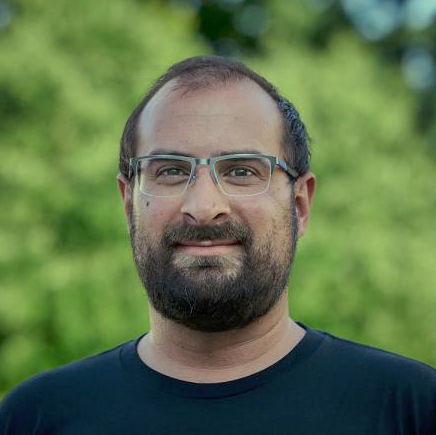
Joey D'Anna
Joey is lead colorist and CTO of DC Color. When he’s not in the color suite you’ll usually find him with a wrench in hand working on one of his classic cars or bikes
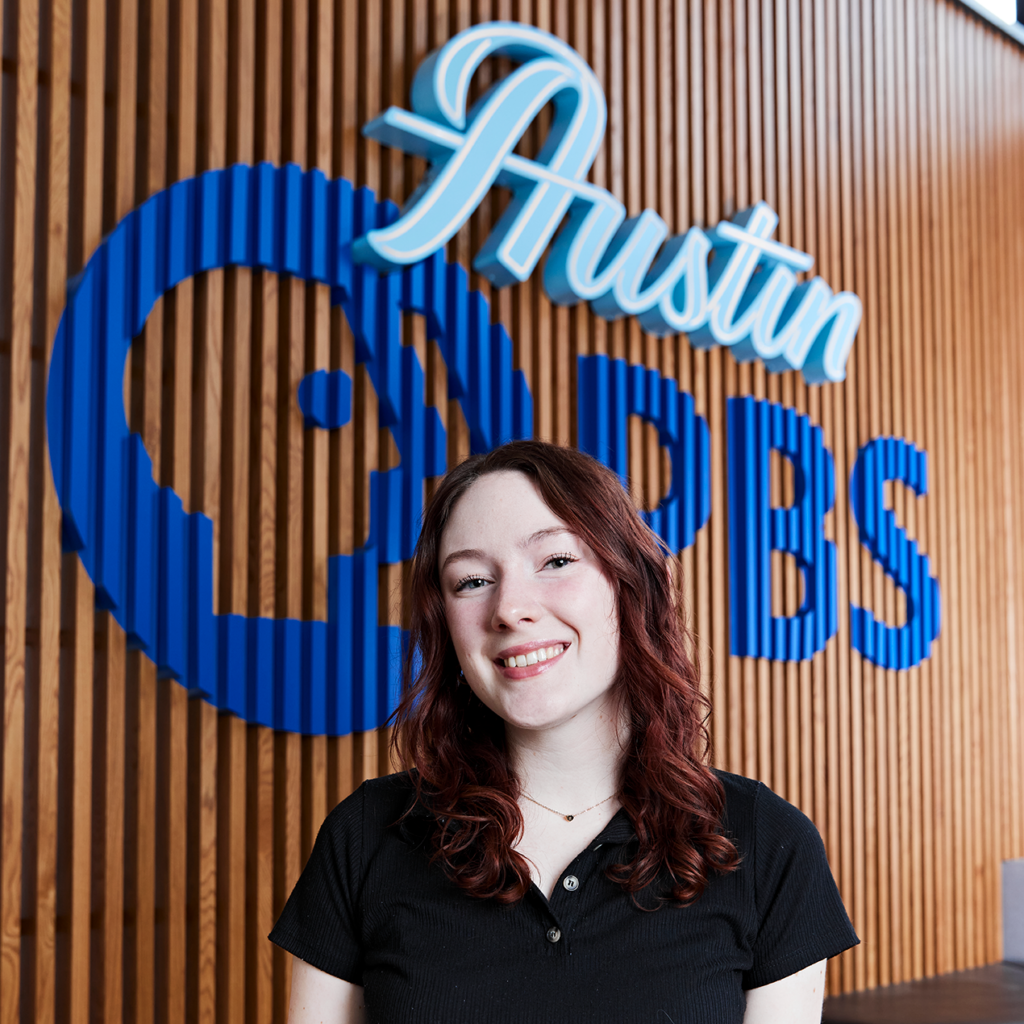
Stella Yrigoyen
Stella Yrigoyen is an Austin, TX-based video editor specializing in documentary filmmaking. With a B.S. in Radio-Television-Film from UT Austin and over 7 years of editing experience, Stella possesses an in-depth understanding of the post-production pipeline. In the past year, she worked on Austin PBS series like 'Taco Mafia' and 'Chasing the Tide,' served as a Production Assistant on 'Austin City Limits,' and contributed to various post-production roles on other creatively and technically demanding project
